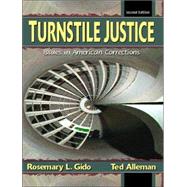
Ted Alleman was an instructor of sociology and criminal justice at two Pennsylvania State University campuses for 20 years. Drawing on his experience as a systems analyst, he designed a computerized jail management system used in Pennsylvania and New Jersey and authored the text Introduction to Computing in Criminal Justice (1996). Mr. Alleman also taught in several Pennsylvania correctional institutions.
Rosemary L. Gido is associate professor in the Department of Criminology, Indiana University of Pennsylvania. The former director of research, Office of Program and Policy Analysis, New York State Commission of Correction, she directed the first national prison-based study of HIV/AIDS in the New York State prison system. A teacher at the college or university level for 30 years, her current research interest is a criminological analysis of the Molly Maguires. Dr. Gido is the editor of The Prison Journal.
| Preface | ix | ||||
| About the Contributors | xiii | ||||
|
1 | (5) | |||
|
|||||
|
6 | (12) | |||
|
|||||
|
18 | (20) | |||
|
|||||
|
38 | (19) | |||
|
|||||
|
57 | (16) | |||
|
|||||
|
|||||
|
73 | (16) | |||
|
|||||
|
|||||
|
89 | (26) | |||
|
|||||
|
115 | (16) | |||
|
|||||
|
|||||
|
|||||
|
131 | (14) | |||
|
|||||
|
145 | (31) | |||
|
|||||
|
|||||
|
176 | (32) | |||
|
|||||
|
|||||
|
|||||
|
208 | ||||
|
|||||
|
The New copy of this book will include any supplemental materials advertised. Please check the title of the book to determine if it should include any access cards, study guides, lab manuals, CDs, etc.
The Used, Rental and eBook copies of this book are not guaranteed to include any supplemental materials. Typically, only the book itself is included. This is true even if the title states it includes any access cards, study guides, lab manuals, CDs, etc.